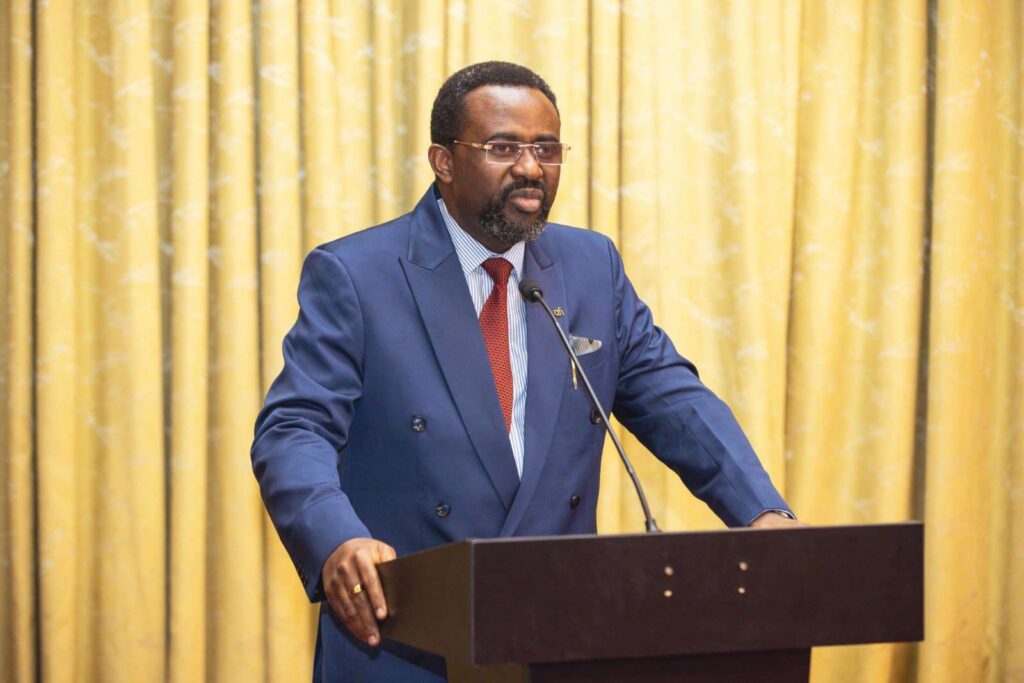In Brief
- Digital asset regulation anchored in research will close cross-border loopholes and standardize crypto reporting for Ghana.
- Resource-Based Monetary Sovereignty (RBMS) proposed, focusing on tangible assets over foreign currency debt.
- A potential dCedi model would be redeemable for specific commodities, shifting focus to store of value.
The Bank of Ghana has taken an intrinsic approach to adopting long-lasting digital asset regulation by academically engineering an entire generation with the aid of the University of Ghana(UG). The partnership led to the establishment of a Chair in Finance and Economics at the University to strengthen economic research, policy formulation and financial innovation.
The future of finance is digital, and developing monetary policies that accommodate and leverage this evolution is vital for any economy. The BoG and the UG intend to foster elevated economic thought through research, mentorship and adapting to changing tides.
Forging a New Path to Monetary Sovereignty
The Cedi Conference Centre held a monumental talk by guest lecture Prof. Yegandi Imhotep Paul Alagidede, the UG–Bank of Ghana Chair in Finance and Economics. The main theme: From Cowries to Crypto: The Long Arc of Monetary Policy in Africa, highlighted how Africa has relied on foreign monetary policy, neglecting local realities.
This tangent effectively led to our current state; however, digital assets provide a blank slate, forgoing the “tyranny of fiat,” providing a new monetary architecture leveraging on blockchain’s ability to bring ready value to Africa’s resources.

His ideal, a system of Resource-Based Monetary Sovereignty (RBMS), avoids anchoring the nation’s money supply in abstract debt of foreign reserve currency but in tangible, productive assets. This line draws a unique connection to tokenization, a core aspect many other governments have pursued, providing ample use cases for utilizing blockchain for economic development.
CHECK OUT: VASP Registration in Ghana: Critical Steps Before 2025 Deadline
BoG Governor Dr. Johnson Asiama’s choice in establishing the Chair was sound. His main aim is simple, starting from the core issue: education, and architecting a new line of thinkers who understand how proper digital asset regulation and adoption could mean monetary sovereignty for Ghana.
“Let today mark the beginning of a new intellectual journey, one that will echo far beyond these walls, into policy chambers, financial institutions, and the hearts of young economics still finding their voice.”
Blockchain for Economic Development: From Theory to Practice
BoG is serious about finding new ways to adopt blockchain, not copying and pasting foreign digital asset regulations. The breakneck speed of adoption across Africa has left many regulators deploying, reassessing and redeploying frameworks. The BoG is no different with its recent statement for VASP registration, hinting at a possible regulation shortly.
However, these recent announcements shine a different limelight on the nation, from quick fixes to steady and permanent change. The academic input provides a base ensuring the capacity to test, design and regulate digital currencies becomes embedded within future generations.
At the conference, Dr Alagidede highlighted some standout examples of a practical use case for blockchain, the Nabiya Qapital (₦aQ) initiative. The pilot programs in Ghana’s Bono and Northern Savannah regions tokenized farm produces, creating a localized, resource-backed financial ecosystem. According to the data, the projects showcased a 30% reduction in inflation volatility and a 200% increase in SME access to credit for youth-led agribusinesses.
CHECK OUT: BoG Alert: Avoid YellowPay and HanyPay; Ghana Crypto Regulations Update
It’s a live demonstration of how anchoring liquidity to real productivity is a pragmatic usecase for blockchain in Africa. In a nutshell, Dr Alagidede’s message emphasized the fact that we are different, hence cannot expect the same monetary policy to apply to us.
Beyond the e-Cedi Pilot: A Vision for a Digital dCedi
Ghana is among the few African nations to test and design its CBDC. The e-Cedi pilot program was initially designed to provide a secure, inclusive and accessible digital version of the national currency. However, in collaboration with the UG, the pilot program can shift far beyond simply replicating physical cash.
The Chair called upon policymakers, central banks, and academic institutions to spearhead research into developing a digital dCedi (resource-backed Digital Cedi). Unlike the e-Cedi pilot, which is a direct liability of the central bank, a dCedi could be directly backed by and redeemable for specific commodity research. It’s shifted from a medium of exchange to a store of value grounded in Ghana’s assets.
Dr. Johnson Asiama added:
“Unlike traditional fiat systems, this model anchors liquidity in measurable physical realities—gold mined ethically, cocoa harvested by real hands, and solar credits produced by Africa’s radiant sun ”
This shift would eventually lead to the establishment of a Cedi Research Unit and an Institute for Metanomic Futures at the University. Such facilities would champion the research for an evolving monetary policy and a new digital asset regulation.
“Let every currency be a covenant, not of debt, but of destiny.” ~ Prof. Yegandi Imhotep Paul Alagidede.
The partnership envisions a future where a framework for digital currency regulation is stress-tested by rigorous research, birthing a new generation of thinkers. Genine monetary sovereignty for Africa begins by breaking down our reliance on legacy policies, and blockchain is providing that chance for us.
Dr Asiama has kick-started Ghana’s journey by tasking the Chair to light the flames of change, one anchored in practical solutions that stretch beyond one generation.
